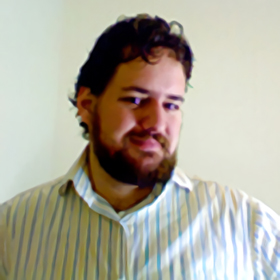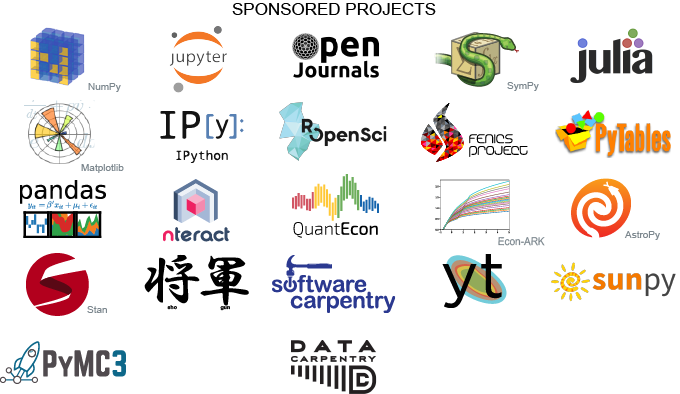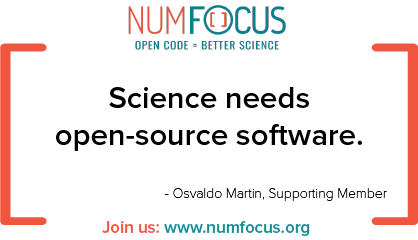
12/26/17 Update: Thanks to your generosity and Andy’s matching gift, we’ve raised $10k for sustainable science! With such a great response and still a week to go, we’ve decided to set a stretch goal of $15,000. Thanks so much for your support!
—
We’re nearing the end of 2017, and that means NumFOCUS is kicking off our end of year fundraising drive!
NumFOCUS Board President, Andy Terrel, has stepped up to challenge the community with a $5,000 matching donation. For every dollar donated to NumFOCUS before January 1, 2018, Andy will match it dollar-for-dollar, up to $5,000!
NumFOCUS President, Andy Terrel, will match every dollar donated—up to $5,000!
Double your impact and help us get to $10,000 before January 1, 2018.
Support the DISC Program
How does NumFOCUS use end of year donations?
Early in 2017, NumFOCUS awarded $13,000 in small development grants to the projects thanks to donations generated by the 2016 end-of-year fundraising campaign!
These funds were used to make MDAnalysis Python 3 compatible, to update the backend on PyTables, to move NumExpr (NE3) out of alpha, and to help SymPy make its first new release since 1.0 in March 2016. It also provided funding to offer a Text Analytics Introductory Course for Social Scientists workshop and supported the American Meteorological Society Short Course on Open Source Radar Software.

Support the DISC Program

What did NumFOCUS achieve this year?
2017 has been an outstanding year for NumFOCUS in a number of ways:
Five NumFOCUS projects were used to power the LIGO Discovery that won the 2017 Nobel Prize in Physics:
- Jupyter
- IPython
- Stan
- NumPy
- Matplotlib
One of our longest-running projects, NumPy, received its first ever grant funding, courtesy of the Moore Foundation.
Four new sponsored projects made NumFOCUS their home:
- SunPy
- Shogun
- Econ-ARK
- Open Journals
The worldwide PyData community more than doubled, from just over 20,000 members at the beginning of the year to just under 56,000 now! (33 new chapters; 78 chapters total across 34 countries)
NumFOCUS added two new staff members and two new advisory committees (Sustainability and Diversity & Inclusion in Scientific Computing.)

